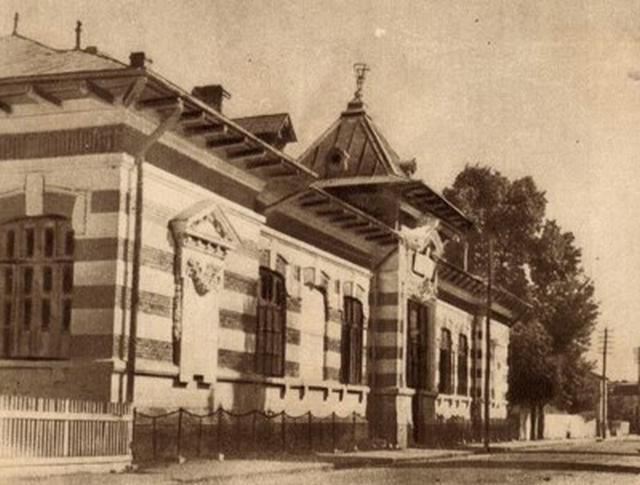135 Years Since the Focsani Zionist Congress
One of the most important events in Jewish history in Romania was the congress in Focsani, held on December 30-31, 1881.

Steliu Lambru, 02.01.2017, 13:54
One of the most important events in Jewish history in Romania was the congress in Focsani, held on December 30-31, 1881. It was known as the Focsani Zionist Congress, or the Great Focsani Congress, bringing together the leaders of Jewish communities. It was the beginning of a movement prompted by rising anti-Semitism, with large communities choosing to move to Palestine to found settlements there.
Historian and political scientist Liviu Rotman, with the National School of Political and Administrative Studies in Bucharest told us he is hesitant in using the term Zionist for the congress held 135 years ago: “The term I propose for that congress was pro-Zionist. In order to understand what it was about and why I would not use the word Zionist I will briefly go into the historical context of that moment. It was late in 1881, a year when a strong wave of anti-Semitism began in Europe, especially in the east. In Czarist Russia, pogroms were looming on the horizon, and a number of anti-Semitic measures had been taken in Romania as well. In this context, the movement of returning to Palestine, called ‘Eretz Israel’, was getting popular among Jews. Lets not forget that, in the second half of the 19th century, this movement became popular, replacing the attitude of integration into European societies. The integrationist movement had started in the 18th century with Moses Mendelsohn, but its failure enhanced the drive to return to Palestine. Mostly present in Eastern Europe, it was seen more and more as an emergency measure, a solution to the serious issues that the Jewish population was facing, the physical danger faced by Eastern European Jews, especially in Czarist Russia.”
Integrationism among Romanian Jews led to a proliferation of organizations and associations with concrete plans to put the idea into practice. Here is Liviu Rotman: “Events were held, and all kinds of organizations appeared in Romania, especially in Moldavia, organizations that militated for the return to Palestine, setting up agrarian settlements. This was new, because agriculture was not typical of Jewish communities. Those communities existed in the south as well, especially in Bucharest, and in port cities such as Galati, in Moldavia, or Braila and Turnu-Severin. Of course Moldavia played host to a number of such communities, the largest of which was in Barlad, in Moinesti. We can talk of a Zionist movement proper only in the last decade of the 19th century, after the Basel Congress and the pieces published by Theodor Herzl, the best known being the one on what he called the new old state. What was the difference between them, given that the old organizations and Herzl militated for the same thing? Herzl was the first who brought a political solution, the state. When speaking about this state, he calls it the national heartland. The Focsani Congress, which was a great achievement for those organizations, called for only one thing: bringing Jews to Palestine and agriculture, without mentioning a political structure.”
Romanian historians mention that the congress represented a large group of people, around 70,000 activists, which back then accounted for one third of Romanian Jews.
According to Liviu Rotman, the congress was more than just words: “I would say about the Focsani Congress, in terms of the large number of participants, that it had in attendance 56 delegates, representing 29 localities, on behalf of 50 associations that called for moving to Palestine. More to the point, a migration was organized in 1882, a few months after the congress. A ship called the Thetis carried there 228 Jews from Moinesti. They arrived in Palestine and founded two settlements, Rosh Pina and Zikhron Yaakov, two towns that still exist in Israel. This proves that it was not just a theoretical debate, but one that produced action. You should realize that this was by no means a simple thing. It was a hard journey, they were going to a country that was not the welcoming Israel of today, with a high performance economy, it was a desert. There was also the lack of financial resources, and I would like to point out that most of those migrants were poor people.”
We asked Liviu Rotman about the political views of the participants in the congress: “They were largely leftists. It would be an exaggeration to say they were Socialists, but some of them were. Others were liberals, but they were generally to the left of center. However, at that time, they were less concerned with the political outlook of the places where they were settling. They just wanted to settle there and farm, tilling the soil of Palestine. Which is exactly what they did.”
The great Focsani Jewish Congress of December 30-31, 1881, was one of the first public events held by Jews who wanted to get back the land they had lost. In the history of Zionism, Romanian Jews are seen as true pioneers in the formation of todays Israel.






























